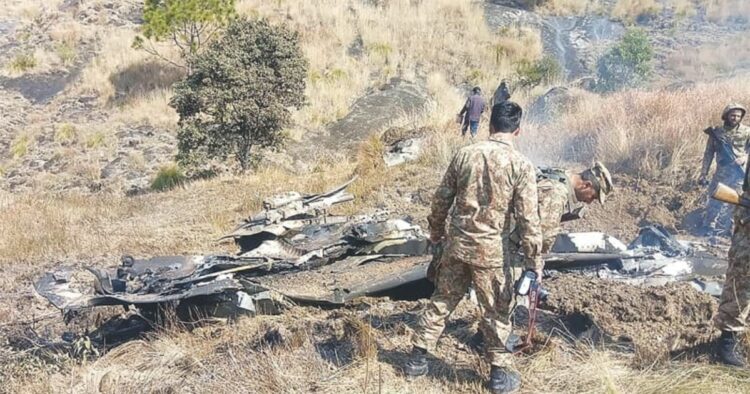KEY POINTS
- India hit back hard after the Pahalgam terror attack
- Pakistan's economy and agriculture are collapsing
- Pakistan is isolated, weak, and falling apart
Every step by Pakistan is leading to its own destruction. Terrorism Backfires on Pakistan Once Again.
On April 22, a brutal terrorist attack in the peaceful hill town of Pahalgam, Jammu and Kashmir, shocked the entire nation. Twenty-six innocent lives were lost, most of them tourists, in the beautiful Baisaran meadow, also known as ‘Mini Switzerland’. This attack wasn’t just a tragedy for the victims and their families, it was a turning point in India-Pakistan relations.
In response, India took strong and clear steps. The government suspended the Indus Waters Treaty, a powerful diplomatic move. It also cancelled the SAARC Visa Exemption Scheme for Pakistani nationals, expelled Pakistani military attachés, and slashed diplomatic staff. The Attari border post was shut, and a deadline of May 1 was set for any legal return across borders. These decisions sent a loud and firm message to Pakistan: terrorism will not be tolerated.
Just two days later, on April 24, the Pakistan Stock Exchange (PSX) suffered a major blow. The index crashed by over 2,000 points within minutes of trading. Investors were terrified, not just because of India’s aggressive diplomatic steps, but because they could see the real possibility of further escalation, maybe even war.
Although the market managed to recover slightly by afternoon, it was still deep in the red. This was the second consecutive session of heavy losses. The economic situation was already fragile, and now geopolitical tension is making it worse.
Before these events, Pakistan’s economy was already in shambles. Inflation had touched an unbearable 38.5%, interest rates were at a crippling 22%, and foreign exchange reserves were nearly empty, just enough for a couple of weeks of controlled imports.
Pakistan’s debt-to-GDP ratio is dangerously high at 70%, and nearly half the government’s income is spent just to pay interest on loans. In fact, only Sri Lanka, Ghana, and Nigeria were worse off in 2023 when it came to economic management.
Pakistan was even forced to borrow money to import tea, and its own Planning Minister begged people to drink less tea. This is the extent of their economic downfall: a country that can’t afford tea is dreaming of fighting India.
India’s decision to put the Indus Waters Treaty in abeyance will deeply hurt Pakistan’s agriculture, which depends on the Indus, Jhelum, and Chenab rivers flowing from India. Although the treaty doesn’t allow unilateral suspension, India’s geographic advantage as an upstream country gives it real control.
Agriculture makes up 22.7% of Pakistan’s GDP and employs 37.4% of its population. The crops most affected — wheat, rice, and cotton- are not only food staples but also key exports. In 2022, they earned Pakistan around $4.8 billion, according to the State Bank of Pakistan. If water stops flowing, these crops will fail, and millions of Pakistani farmers will suffer.
Even though Pakistan managed to get a new $1.3 billion IMF loan, it won’t be enough. According to Fitch Ratings, Pakistan still needs to repay $22 billion in external debt in the financial year 2025, money it simply does not have. Most of its income is already tied up in paying past loans, and the country remains heavily dependent on handouts from the IMF and friendly nations like China and Saudi Arabia.
Pakistan remained on the FATF grey list for five years due to its links with terror funding, making it harder to get international loans. So, while Pakistan dreams of retaliating against India, the truth is — it can barely afford to feed its people, let alone fund a war.
Despite all this, Pakistan continues to behave aggressively. After India’s action, Prime Minister Shehbaz Sharif called a meeting of the National Security Committee to discuss a response. But what response can they give? Diplomatically, they are isolated. Economically, they are bankrupt. Militarily, they are weak and cannot afford a prolonged conflict.
Even as they issued a missile test notification along their coast, it looked more like a show of desperation than strength. It was a hollow gesture by a country crumbling from within.
India’s firm response after the Pahalgam terror attack shows that it will not tolerate terrorism anymore. By hitting where it hurts, diplomatically, economically, and strategically, India is exposing Pakistan’s weaknesses.
While Pakistan continues to follow the path of terror, India is rising as a global power, focused on growth, development, and security. In the end, Pakistan’s policies of promoting cross-border terror are only leading it to its downfall.

















Comments